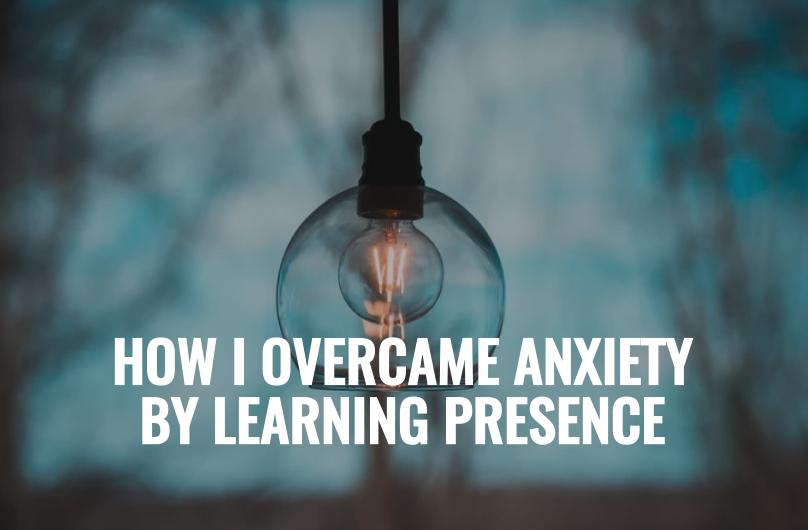
When I was twenty years old, I had what could perhaps best be described as a nervous breakdown. I don’t actually know what to call it, but I suppose “nervous breakdown” is about as good a name for it as I’m going to come up with.
Many things were happening in my life at that time that I was ill-equipped to deal with, and I guess it all just got too much for me.
where there was a lot of negative emotion. My siblings and I all had trouble with our dad, who was given to fits of rage, which came about unpredictably, without discernible provocation.
At age twenty I was still living with my parents, which is normal where I come from, but I left to go overseas for five months, to travel around Europe, and do part of my undergraduate degree in England.
It was my first time going overseas, and, for the most part, I was all by myself. I didn’t have a support network to speak of, and a lot of things were obviously different and unfamiliar.
But, as well as that, it seemed like, once I was away from my family home, all the unprocessed emotions that I’d bottled up while living there were able to come to the fore, and they overwhelmed me.
Another thing I remember is that I kept looking for ways to extend my trip. I was only supposed to be gone for five months, but I ended up staying for a year, and, even right before I left, I was still looking for ways to stay longer. (However, my visa was about to expire, I’d already changed the date of my flight once, and I’d run out of money).
I wasn’t fully conscious of it at the time, but I think what I was trying to do was avoid going back to my family home, because it was such a toxic environment.
Looking back, I wonder why I didn’t go back to Australia (which is my home country) but then start a sharehouse with some friends or something, as opposed to going back to living with my parents again.
I suppose, given the state I was in, I wasn’t really thinking resourcefully or rationally. I wasn’t even really aware that I was trying to avoid going home. At that time, I was doing things randomly, without knowing why I was doing them – or even really knowing what I was doing.
The state that this nervous breakdown (as I’m calling it) was characterized by was one of unbearably intense anxiety. It was like, no matter what I did or where I turned, there was this feeling of absolute dread and horror always with me. It was like this panic or state of emergency that never left, but that seemed to have no concrete reason behind it.
Another closely related thing was that I was constantly consumed by negative thoughts. There were all these conversations going on in my head that I couldn’t shut off. I could hear my parents admonishing me, telling me what I should and shouldn’t be doing. And I could hear all these other voices – worries, doubts, self-flagellation, and so on – constantly tormenting me, filling up my inner space, so I couldn’t have a moment’s peace, or concentrate on anything.
My actions became totally erratic and unpredictable, because all my attention was taken up by these negative thoughts.
It was like a cloud I was lost in, to the point where I often couldn’t even form intelligent sentences or see straight.
I actually thought I was going to die, at certain points, because I had so little control over my behaviour. I wasn’t homeless for an extended period, but I did sleep on the street sometimes. But weirdly, I did this even when I had money in my bank account – it wasn’t that I had no money – it was just that I didn’t have the presence of mind to organise myself and find a place to stay. It wasn’t until just before getting home that I ran out of money. (I arrived home with sixteen dollars in my bank account).
When I got home, no one understood what had happened to me, and, unfortunately, no one really seemed to be able to help me. I didn’t really get much sympathy; the consensus seemed to be that what had happened to me was my own fault. So though I did make it back to my home country alive, I didn’t really experience much relief when I got there.
Learning to watch my thoughts from Eckhart Tolle
However, about three years or so after my initial breakdown, I experienced a significant turning point, when I read a book called ‘A New Earth’ by Eckhart Tolle.
In it, Tolle said, “You are not your thoughts.” He said that states like anxiety, depression, and general unhappiness are the product of being wrapped up in thoughts rather than being present to the moment, and that by observing thoughts rather than being lost in them, you can calm the mind and become happier and more peaceful.
This made sense to me immediately, because the core of my problem was that I couldn’t get rid of the dark cloud of thoughts that I was constantly lost in.
I began trying to watch thoughts go by instead of being wrapped up in them, and, little by little, I became more peaceful.
About four or so years later, I didn’t really feel like I was suffering from anxiety at all. I still had moods and whatnot, but, on the whole, I was much happier and more peaceful than I’d ever been before – including before I’d had my nervous breakdown.
I also came across some books that taught me the same thing as Tolle’s, but in an even deeper way – most notably the work of Huang Po, Ramana Maharshi, and Nisargadatta Maharaj – and also learned yoga and meditation.
Eventually, the troubled times I’d been through became a distant memory. I’d become happier, more peaceful, and more confident than I’d ever been before, and, importantly, I understood the principle behind how this had happened.
These days, I sometimes get annoyed or angry, feel sad, and so on, but it never seems to last very long. I always seem to return to feeling good, and being present to the moment again.
One thing I will say is that I think I’ve become somewhat complacent, over time, with going deeper with what I’ve learned; but I’d like to counteract this tendency, because learning to be present is the type of thing you can keep going deeper and deeper with – and the deeper you go with it, the more peace and happiness it yields.
My advice to you if you suffer from anxiety or depression
So if you struggle with anxiety or depression, or maybe addictive behaviour, or just want more peace and happiness in your life, learning to watch your thoughts and be present to the moment is definitely something worth looking into.
It’s possible to go very far with it, and question the entire nature of reality, which is what the work of people like Ramana Maharshi and Nisargadatta Maharaj prompts you to do.
But you don’t have to take it that far if you don’t want to. Eckhart Tolle’s work is a bit milder, and there are also books on meditation and mindfulness that keep things very simple, and state things in straightforward, scientific language.
So I’d say there’s a resource out there for anyone who wants to learn to be more present, regardless of how far they want to take it, and what kinds of things they are and aren’t into.
The suffering I went through when I was struggling with anxiety was intense to the point of being unbearable, and there were times when I thought I just couldn’t take it anymore. But I kept searching, trying to find a solution to my problem, and, eventually – thankfully – I finally found one.
One thing I think is significant is that, as far as I remember, I never saw what I was struggling with as a permanent thing, and I kept trying to find a solution, no matter how hopeless it all seemed.
I’m really glad I did that, because now my life is really happy, and I’m much better off for having delved deeply into things in an effort to understand them better. I’m really grateful for what I’ve learned about awareness and presence, and this journey from normality to hellish anxiety all the way through to happiness and understanding has been the most significant and rewarding thing I’ve ever experienced.
So, personally, I think that, if you’re struggling with something – be it anxiety, depression, difficult circumstances, a general dissatisfaction with life, or something else – you will eventually get through whatever you’re going through, and having hope is not unreasonable.
I think that my story demonstrates that you can change, and that painful times don’t last forever.
It seems to me that being present to the moment is kind of the solution to everything, in a way, because, when you’re sufficiently present to the moment, you’re happy – even if you’re faced with extremely challenging circumstances.
So that’s a little bit about me, and a little of my story. I hope you found it interesting, and I hope having read it benefits you in some way.
Thanks very much for listening.
Good luck with your journey!
————————————
Lincoln has a blog where he writes about subjects such as meditation and self-development, makes jokes, and tells stories about his life. He has a philosophical side, a pragmatic side, and a ridiculous, crudely humorous side. You can find him at lincolndodd.com.




